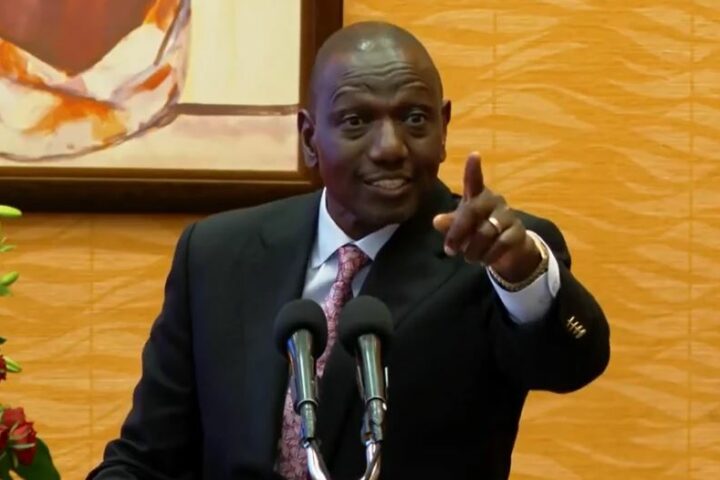Safe trading entails more than just looking for a reliable broker. You need to pay special attention to the broker’s credentials to determine whether the service they offer is legitimate or not. Regulators that license and approve brokers need a special investigation before trading or investing.
If you consider finding a broker in South Africa, it will help if you read this report first. Previously known as the Financial Services Board, the FSCA is the financial watchdog of the South African market and is responsible for regulating the market by safeguarding the economy and South African citizens from fraudulent schemes and money laundering.
FSCA is an abbreviation for Financial Sector Conduct Authority. Although it is okay for South Africans to work with forex brokers that are not regulated by the body, it is advisable to work with locally regulated brokers.
This way, you can be sure that you will have a local authority you can contact to have your funds refunded if something were to happen to them, such as if they went bankrupt or were involved in fraud. If you work with regulated brokers, you can still have your funds restored, but it takes some time.
Additionally, working with a forex broker regulated by the FSCA, you can be sure that the local laws and authorities will deal with any form of misconduct which can help since you are familiar with the local regulations.
What Does the FSCA Do?
In simple terms, FSCA aims at protecting financial customers by pushing for fair treatment from financial institutions, agitating for financial literacy, and offering financial education programs. It also supports the integrity and efficiency of financial markets by helping maintain financial stability and improve financial inclusion.
The organization is responsible for regulating insurers, retirement funds, Capital markets, hedge funds, and investment brokers. It governs every legitimate broker in South Africa. The body has a reputation of being one of the regulatory bodies with reasonably high standards. To qualify for registration as a broker or money manager with the body, you need all the relevant accreditation and documentation. In most cases, this may include a special exam or other specified credentials.
If approved to operate as a broker based on the regulations put forward by the FSCA, you are obligated to provide mandatory and periodic disclosures of activity and adequate information. Or you are advertising should not make any misleading or exaggerated claims. For instance, when talking about projected performance, you need to talk about it in general terms and not particular monetary amounts for specific assets.
Additionally, you must specify the risks your clients will face in different trades. The FSCA also requires every appropriate to be transparent and upfront with all fees and pricing. All these guidelines are geared towards preventing customers from being conned through fraudulent activities.
Apart from meeting the requirements and adhering to the disclosure of information by providing regular reports, you must pay a specific fee to the FSCA to maintain your license. The FSCA website also features a list of registered financial services for clients and areas where they can file complaints.
The Enforcement of FSCA Regulations
The plan put forward by the FSCA should not be confused with a vision statement. The body has been very active in improving Forex Trading in Africa by tracking fraudulent activities and enforcing penalties. The FSCA has recently focused on monitoring insurance fraud and penalizing quite a number of security fraud violations.
The body prosecutes violations through its own financial services tribunal. The FSCA acts on different penalties for offenses ranging from initial warnings to fines and even revocation of licenses. The body has a record that backs the vigorous enforcement of specified guidelines and penalties for violating brokers and companies.
Although the new regulations protect project investors, the body is yet to get a state-backed investor protection program. The rules clearly state that the FSCA just intervene and help investors causing significant financial losses, but there are no specific set amounts like it is with other countries.
What Changes Have Been Made to the FSCA Structure?
As we said before, the FSCA was previously referred to as the FSB. However, it did not only change its name. Many brokers regulated by the FSCA are trying to put up with various changes. Some of the fundamental changes include:
* The body was responsible for educating customers. It has to ensure that customers understand the different financial products they are buying and that adverts are not misleading in any way.
* It wants to make sure that every customer is financially stable and less likely to lose large amounts of money. If a customer starts making significant losses, FSCA may come in.
* It has the responsibility of disseminating information about the changes to every company they regulate.
* The FSCA’s main objective is to develop the financial market in South Africa.
Although most of these changes were sudden and unexpected, the body indicated that they would take place gradually, so companies have enough time to adjust. You can find any legislative changes in pdf form on their website.
Given how ambitious the changes and their scope are, brokers will be responsible for providing customers with tools that help them learn about their investments, transparency, visibility, and guidance to make sure that they get reasonable returns.
Additionally, customers working with FSCA regulated products are protected from unscrupulous tactics and the pressure of investing in asset classes they do not know about. They also have protection from a lack of transparency regarding fees and policies and false advertising concerning expected returns.
In summary, the FSCA, previously the FSB, is one of the most reputable regulatory organizations with high standards from initial licensing, ongoing requirements, and adherence to regulations. The organization is evident in its dedication to providing educational resources to customers using financial products and takes action if anything goes wrong. If you have a complaint with a broker registered with the organization, you can file a complaint through their website. They have a history of dealing with significant cases of fraud and penalizing the offenders.
While the body may have strict regulations and standards, you cannot be sure that a registered broker will be 100% transparent. It is your responsibility as a customer to do your due diligence before you start working with any broker. Look at the services they offer, transparency regarding fees, and carefully go through their terms and conditions.








